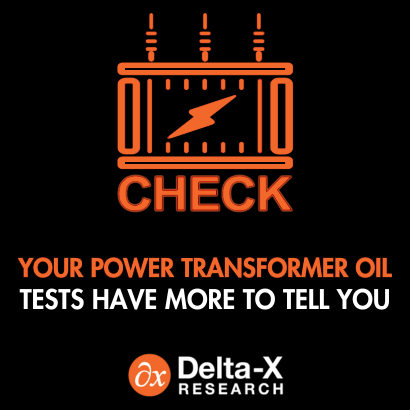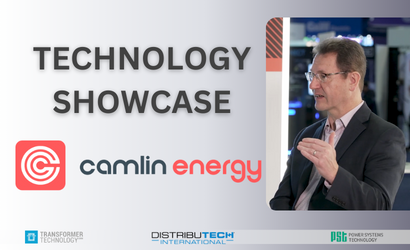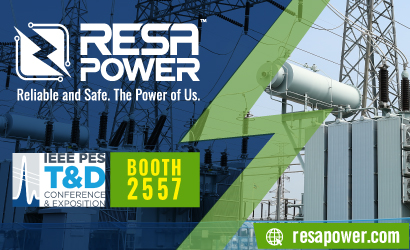
INTERVIEW WITH LARRY ZULCH
CEO, Invinity Energy Storage
If you have enough small battery systems, they can make a difference. But right now, with large wind farms, large solar installations, they're making so much energy when the wind's blowing, the sun's shining, they don't know what to do with it all. We're curtailing gigawatt hours every year, and then as soon as the sun goes down, there are shortages. That's solved in the hundreds of megawatt-hour range.
Alan Ross
Hi, I'm Alan Ross. I'm the Managing Editor of APC Media, our APC Technology Productions, Transformer Technology, Power Systems Technology. We are here at the RE+ 2023 event in Las Vegas.
My next guest is Larry Zulch. We've had an interview before, Larry. Larry is the CEO of Invinity, an ESS, large Energy Storage System producer. It seems like batteries are now everywhere, right? The whole second floor upstairs at RE+ is battery, battery, battery. A lot of different systems. Talk a little bit about what's changed since the last time we talked a year ago.
Larry Zulch
There's increasing recognition that when the percentage of renewable energy goes up, when RE+ is successful, getting everybody to do wind and solar, the grid gets unstable. That's when you need energy storage, stabilizing the grid by making energy that's produced intermittently available 24/7.
AR
There's a lot of different technologies that use the word scalable. That's one of the big challenges for utilities to decide what to do from a scalability standpoint. From a security standpoint, there's a lot of challenges in that scalability.
LZ
Well, scalability is important. If you have enough small battery systems, they can make a difference. But right now, with large wind farms, large solar installations, they're making so much energy when the wind's blowing, the sun's shining, they don't know what to do with it all. We're curtailing gigawatt hours every year, and then as soon as the sun goes down, there are shortages. That is not solved by having a megawatt-hour or two. That's solved in the hundreds of megawatt-hour range.
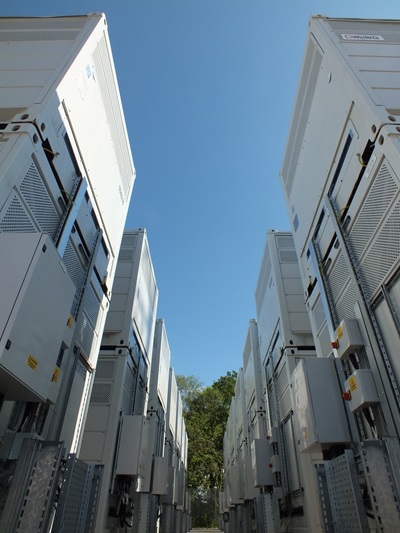
AR
One of the problems is capturing that wind and solar. The other problem is using it when you need it and having that, I'm not going to say automatic shut off, but it is almost as the battery storage areas are becoming peaker plants of the future. We're trying to do away with gas peaker plants, but that's an inverter-based system. Talk about the challenges that the inverter-based system is putting on the rest of the assets. I know transformers. Transformers are failing at twice the rate they've been failing because of the inverter-based system. A lot of harmonics in the system. Now you're getting a lot of power quality issues. Is that affecting the storage system?
LZ
You brought up a number of important issues there. What I would say is that we work with PCSs (Power Conditioning Systems) that are designed to fit seamlessly into the larger grid system. But getting the stability you're looking for is going to take energy storage of various types all working together. Like anything else, we tend to look at energy storage in a single bucket. But really, there's going to be short and medium and long and ultra-long and seasonal, and all of those are different technologies.
AR
Let's switch gears a little bit. Where does Invinity fit in all of that? You know the market; you've got a solution in the market. Where do you fit?
LZ
Since we last talked a year ago, Invinity has put in the largest flow batteries in the United States, in Canada, and in Australia. We already have done so in the UK. What we're doing is demonstrating the commercial viability of vanadium flow batteries to be something that doesn't wear out and doesn't catch fire. Lithium batteries are not perfectly appropriate for stationary use. They're terrific. I have them in my car, I have them in my phone, I have them in my watch. But they're not always the right solution, but there has not been an alternative. Even our current product is not a truly viable alternative to lithium for stationary storage. But we are developing that viable alternative in our next version of our product, and that will be one that will be an entirely new ball game for vanadium flow batteries.
Invinity has put in the largest flow batteries in the United States, in Canada, and in Australia. We already have done so in the UK. What we're doing is demonstrating the commercial viability of vanadium flow batteries to be something that doesn't wear out and doesn't catch fire.
AR
One of the reasons I love talking to you is that you have a factory in Scotland. I was born in Edinburgh, so I'm really akin to it. Is that your only factory?
LZ
No, it isn’t. We build the core of a flow battery, the so-called cell stack. It has the membranes where the electricity is interchanged with the liquid electrolyte, which flows through, hence flow battery. That's our real intellectual property that we've developed. We do build it right outside Edinburgh, in Bathgate, and in Vancouver, British Columbia, which is the center of electrochemical expertise in North America. It all came out of the paper industry, so a long story, but they developed expertise in electrochemistry to work with bleach to make paper white. That expertise led to fuel cells in Ballard and then led to flow batteries and ultimately to Invinity.
These are our manufacturing facilities, Vancouver and Bathgate. Then we also build the balance of system, the big metal boxes with tanks and pumps. The best supply chain in the world is in China. We build the balance of system in Suzhou, outside of Shanghai, and bring them in. Although, of course, like everyone else, we're looking at onshoring that capability.
AR
You talked about the future and what you're developing. Obviously, that's going to be a patented approach.
LZ
For the first time in this show, we're showing Mistral, which is the code name for our next-generation battery, designed to be less expensive and able to scale larger than any flow battery before.
AR
When will that be coming to the market? How long is it going to take?
LZ
End of next year will be first customer ship.
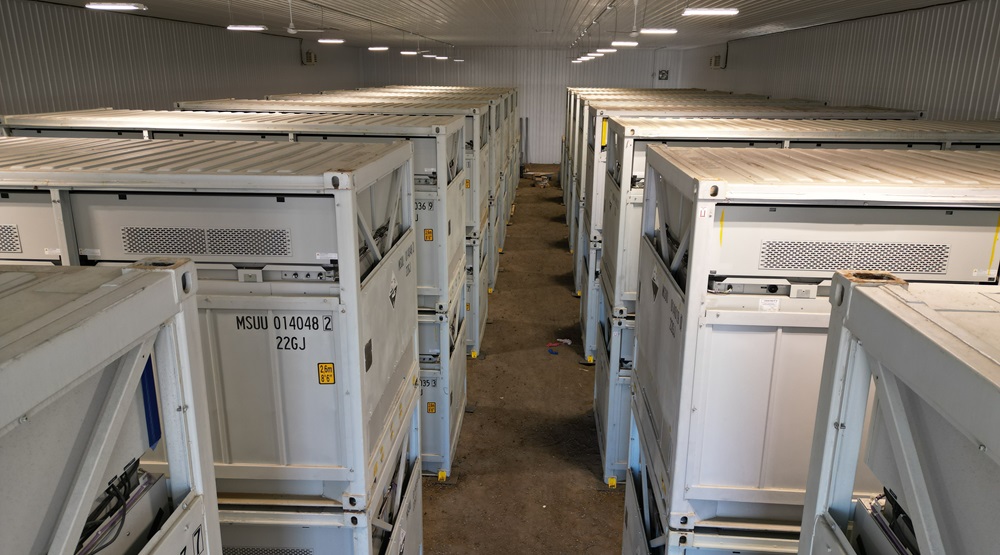
AR
Have you got customers lined up?
LZ
Yes, we do.
AR
You're not allowed to share any of that, are you?
LZ
No, I'm not allowed to say exactly who, but what I can tell you is that the interest in it is great, because the limitations of lithium are clear. Therefore, people are hungry for alternatives. We do have a global engineering firm, a very large German and Spanish firm that is supporting the development of this new product. When they say this is a great product and that they've co-developed it with us, we think it'll change the non-lithium storage industry.
We do have a global engineering firm, a very large German and Spanish firm that is supporting the development of this new product. When they say this is a great product and that they've co-developed it with us, we think it'll change the non-lithium storage industry.
AR
Storage industry. You use Vanadium, is that correct? Vanadium for most people, if you don't have an engineering degree and you didn't have to take a chemistry course, it sounds very appealing.
LZ
My daughter say it sounds like it's out of a Marvel movie. Vanadium is element 23, it's an element. It's more common in the Earth's crust than copper or chrome or lithium or many other things. Vanadium is mainly used to strengthen metals, but it has a unique characteristic: it combines with oxygen in multiple ways. When the connection changes, it stores or discharges energy. Similar in some ways to the process when hydrogen combines with oxygen, which makes water. Vanadium goes through a similar, what's called a redox process, reduction and oxidation. Our batteries take advantage of that.
Vanadium is mainly used to strengthen metals, but it has a unique characteristic: it combines with oxygen in multiple ways. When the connection changes, it stores or discharges energy.
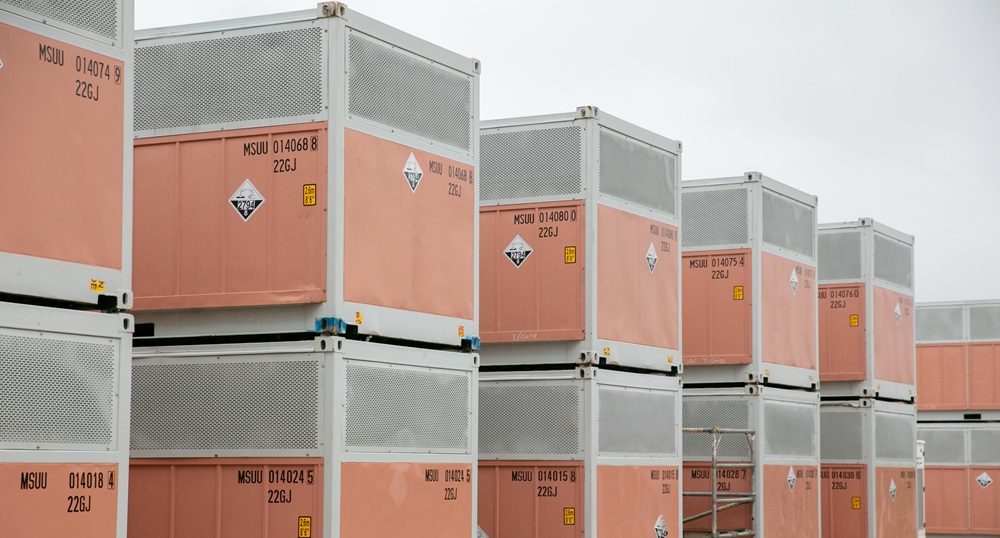
AR
Excellent. That is a change the world thing because there is a limit to lithium. Who owns it? Where is it? If vanadium is as common as copper, that means it's everywhere, which is a great solution.
LZ
80% of vanadium is made out of post-industrial processes. When you take sulfur out of fuel for ships, you run it through a catalytic bed to do that. What clogs the catalyst? Vanadium. A catalyst is useless when it’s about 18-20% vanadium, which is a great source of vanadium, and that's being extracted in the US, in Asia, in Europe, all over the place.
AR
Oh, that's excellent. It’s good to interview you again.
LZ
Thank you for the opportunity to talk with you.
Powered by





